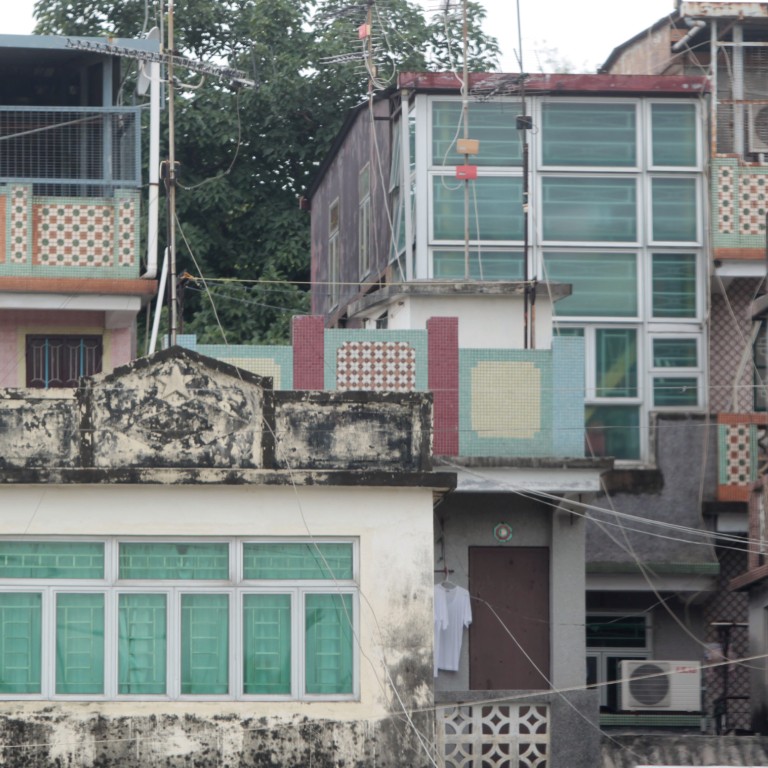
In divided Hong Kong, distrust in officials brings people together
Philip Bowring questions the motives and competence of those in government, in the face of daily reminders of dodgy policies, weak law enforcement and brazen corporate behaviour
Official corruption is not just about envelopes of cash and transfers to companies in the Cayman Islands. It is the acceptance of any significant advantage in return for another significant advantage. Advantages, like money, are fungible.
Likewise, trust in government derives not from rules per se but from an understanding that rules are written and implemented to achieve defined public interest objectives, and are not sufficiently opaque to allow insider interests to twist them to their own advantage.
The machinery of justice has taken to handing out long jail terms to those accused of money laundering without any evidence that it had any criminal - as opposed to tax or exchange control avoidance - origin. Imagine if we applied the same principle to the many cases in which there is widespread perception of government decisions being rigged to favour a developer and contrary to the public interest but for which no evidence of exchange of advantages was available.
Meanwhile, however, we have overwhelming evidence of official failures to enforce laws, which make Occupy Central, should it happen, a minor inconvenience. The chief secretary, Carrie Lam Cheng Yuet-ngor, must explain a few things relating both to law enforcement and the widespread suspicion that certain departments are in the pocket of developers who run roughshod over the public interest - and get away with it.
Revelations about Henry Tang Ying-yen and Donald Tsang Yam-kuen, for example, have not only increased public cynicism about senior echelons, they have undermined the morale of mid-ranking civil servants seeking to act professionally and in the interests of the community but sensing that their superiors may have other agendas. There is much to do to restore trust.
At the most basic level, there must be a reason why Lam takes no action to demand the police enforce parking regulations in Central and other crowded spots despite daily reminders in the media of the inconvenience to the general public.
How is it that the most the police usually do is issue meaningless "warnings"? The above-the-law treatment of limousines and their drivers is not the doing of officers on the beat. They follow orders. Whose? And what advantage are they getting in return for this favour? If none, why do it? Are we already in a local version of George Orwell's insight into communist party elitism: "All animals are equal but some are more equal than others"? Does the chief secretary not have authority to insist that department heads do their job?
Then we have the level of lawlessness in the New Territories, not unconnected with the corruption inherent in the small house policy that provides windfall profits to those deemed eligible by the bosses who run the rural committees representing Hong Kong's supposed 600-plus "indigenous villages", a male elite category created in 1972. But it appears that there would be a "disadvantage" to people in government should they be subjected to reform, or the attention of the Independent Commission Against Corruption.
In many cases in the New Territories, we see large-scale illegal structures and misuse of agricultural land. The outright defiance of honest attempts by officials of relevant departments to enforce the law is given no high-level backing, let alone by a police force which appears to turn a blind eye to thuggery, leaving the law in the hands of village bosses and rural committees.
And now we have a reprise of the long-running saga of Hopewell Holdings' attempts to trash the public interest by over-building on an already congested Queens Road East. This matter was supposed to have been settled in 2008 by none other than Lam, then head of the Development Bureau.
It may be recalled that a mega development proposal was - surprise, surprise - knocked back by the Town Planning Board following public opposition. Then followed some deals in the opaque world of land exchanges and vague promises between government and Hopewell that ended with Lam herself intervening and negotiating what was described as a "compromise" between the developer and the public interest, with Hopewell being allowed to build a 55-storey hotel.
But not satisfied with that, Hopewell is now back at the Town Planning Board with an enhanced scheme that appears, particularly to local residents, to make a nonsense of the 2008 "compromise".
The board, a creature of the Planning Department, will meet soon to consider this, demonstrating that there is no limit to the ability of developers to keep coming back to government for more, exploiting "interpretations" of the rules and the buck-passing between three departments - planning, lands and buildings. Over the three sits the Development Bureau, now headed by Paul Chan Mo-po, another top official whose non-official activities have been in the public eye for all the wrong reasons.
Constitutional issues have been the main focus of public attention. But our leaders should realise that, while public views on these diverge widely, there is a convergence of distrust in the motives as well as competence of some top officials.

